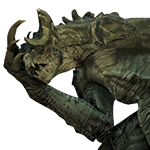- Joined
- Jan 28, 2011
- Messages
- 100,413















Tags: inXile Entertainment; Kevin Saunders; Matt Barton; Torment: Tides of Numenera
Matt Barton's interview with former Obsidian and inXile game director Kevin Saunders begins on a somber note. Kevin has been working at a robotics company called Embodied since 2018, but he's been on extended leave since last summer after being diagnosed with colon cancer. He's been undergoing chemotherapy and unfortunately it sounds like his odds aren't the greatest. Like Matt, we wish Kevin all the best and find it a bit awkward to continue with the interview after learning that, but continue we must. For this interview, Matt chose to start from the present day and work his way backwards, so the next topic of discussion is Adhara, the cancelled fantasy co-op RTS that Kevin worked on at Nexon back in 2016-2017. The game's setting was created by Neal Hallford and the twist would have been that it was secretly set in our universe 1000 years into the future. Some of the design documents can be seen in the video.
However, the majority of the episode is focused on Torment: Tides of Numenera and the recurring question of how it went wrong. Kevin has a more wide-ranging take on this than George & Colin. Despite the fact that it was a record breaker on Kickstarter at the time, he says the game didn't really have a large enough budget. There wasn't enough time to iterate and it was also in preproduction for too long. Kevin agrees that the game had too many stretch goals and reveals that to a large extent he was simply copying what the Project Eternity Kickstarter had done half a year earlier, under the assumption that Obsidian knew what they were doing. This proved even more unsuitable for a game like Torment because of its greater visual diversity which made map creation more expensive. The game was also hurt by the postponement of Wasteland 2 past its (wildly unrealistic) original release date of late 2013.
In summary, Kevin appears to feel regretful about the expectations and constraints that were placed on him by working with Kickstarter. He does think that the compromises he arrived at, such as turning the Meres into text-based CYOA sequences, were reasonable ones. Ultimately, he's found that game development and oncology have something in common. They're both far less of an exact science than people might think.
Matt Barton's interview with former Obsidian and inXile game director Kevin Saunders begins on a somber note. Kevin has been working at a robotics company called Embodied since 2018, but he's been on extended leave since last summer after being diagnosed with colon cancer. He's been undergoing chemotherapy and unfortunately it sounds like his odds aren't the greatest. Like Matt, we wish Kevin all the best and find it a bit awkward to continue with the interview after learning that, but continue we must. For this interview, Matt chose to start from the present day and work his way backwards, so the next topic of discussion is Adhara, the cancelled fantasy co-op RTS that Kevin worked on at Nexon back in 2016-2017. The game's setting was created by Neal Hallford and the twist would have been that it was secretly set in our universe 1000 years into the future. Some of the design documents can be seen in the video.
However, the majority of the episode is focused on Torment: Tides of Numenera and the recurring question of how it went wrong. Kevin has a more wide-ranging take on this than George & Colin. Despite the fact that it was a record breaker on Kickstarter at the time, he says the game didn't really have a large enough budget. There wasn't enough time to iterate and it was also in preproduction for too long. Kevin agrees that the game had too many stretch goals and reveals that to a large extent he was simply copying what the Project Eternity Kickstarter had done half a year earlier, under the assumption that Obsidian knew what they were doing. This proved even more unsuitable for a game like Torment because of its greater visual diversity which made map creation more expensive. The game was also hurt by the postponement of Wasteland 2 past its (wildly unrealistic) original release date of late 2013.
In summary, Kevin appears to feel regretful about the expectations and constraints that were placed on him by working with Kickstarter. He does think that the compromises he arrived at, such as turning the Meres into text-based CYOA sequences, were reasonable ones. Ultimately, he's found that game development and oncology have something in common. They're both far less of an exact science than people might think.







![The Year of Incline [2014] Codex 2014](/forums/smiles/campaign_tags/campaign_incline2014.png)















![Glory to Codexia! [2012] Codex 2012](/forums/smiles/campaign_tags/campaign_slushfund2012.png)






